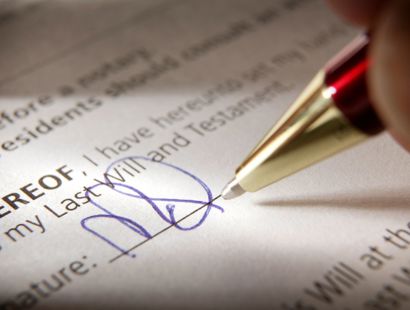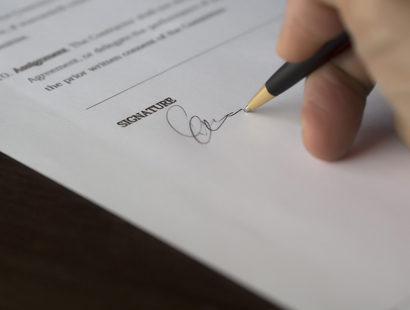
The dangers of ‘Do-It-Yourself’ (DIY) wills on succession
In light of current technology, creating a will has never seemed easier. ‘Do-It-Yourself (DIY) wills’ may work if your estate is simple but many carry hidden risks which can result in your loved ones being subject to additional stress, time, legal fees, and even conflict. Before deciding to ‘go it alone’, it's critical to understand what could go wrong.
In this briefing from associate Jessica Rhodes, she outlines the main risks of ‘DIY wills’ and why you should always make a will through a solicitor.
1. Invalidity due to legal mistakes
DIY wills are often not signed and witnessed correctly, leaving them partially or entirely invalid. Wills must meet various legal requirements (which vary by jurisdiction) in order to be valid. For example, UK wills must be made in writing and signed by the testator—or by another person at their direction and in their presence—in the presence of two independent adult witnesses, who must also sign the will in the testator’s presence.
2. Ambiguities and poor drafting
DIY wills often lack clarity and use inconsistent legal terms, which can cause confusion and/or disputes among beneficiaries.
3. No customisation for complex situations
DIY wills are usually ‘one-size-fits-all’ and therefore not bespoke. They don’t usually account for modern family structures, vulnerable beneficiaries, multiple jurisdictions, large or complex estates, business ownership and tax-planning strategies. This could lead to the omittance of beneficiaries, digital assets, foreign property and business interests.
4. Tax advice
DIY wills do not usually come with personalised tax advice which can lead to unintended tax consequences for your estate and/or beneficiaries.
5. No co-ordination with your other documents
DIY wills are likely to fail to co-ordinate with your other estate planning documents, such as nomination forms in respect of insurance policies and/or pensions, and other lifetime trusts. This could result in unintended tax consequences or the succession of your assets to unintended beneficiaries.
6. Higher risk of being contested
DIY wills can be easier to challenge in court, especially if mental capacity, knowledge and approval or undue influence is in question. This could be because your loved ones feel excluded or surprised by the terms of your will or because the will has been poorly drafted. Legal disputes can be extremely costly and time-consuming.
7. Rarely reflect life updates
Life changes such as marriage, divorce, birth of children, birth of grandchildren and/or the death of a beneficiary require updates to your will. DIY wills are rarely maintained properly, leading to outdated wishes and/or unintended consequences.
How can we help?
A well drafted will really is a ‘stitch in time to save nine’ as unravelling the unintended consequences of a homemade will is often much more expensive than the cost of taking legal advice when making your will in the first place. It is also much less costly to your loved ones on an emotional level if there are no queries about your will or estate when you die: you cannot put a price on peace of mind.
Russell-Cooke’s private client team has a wealth of in-depth experience and knowledge to assist you with your will and wider estate planning. Please do not hesitate to contact us with any queries or to discuss your circumstances with a view to getting your affairs in order.
Jessica Rhodes is an associate in private client team.

06.11.2025
Private client team news and updates—November 2025
Our private client legal experts explore the upcoming changes to domicile legislation and what it could mean for you, and how you could benefit from...
Get in touch
If you would like to speak with a member of the team you can contact our private client solicitors; Holborn office +44 (0)20 3826 7522; Kingston office +44 (0)20 3826 7529 or Putney office +44 (0)20 3826 7515 or complete our form.










